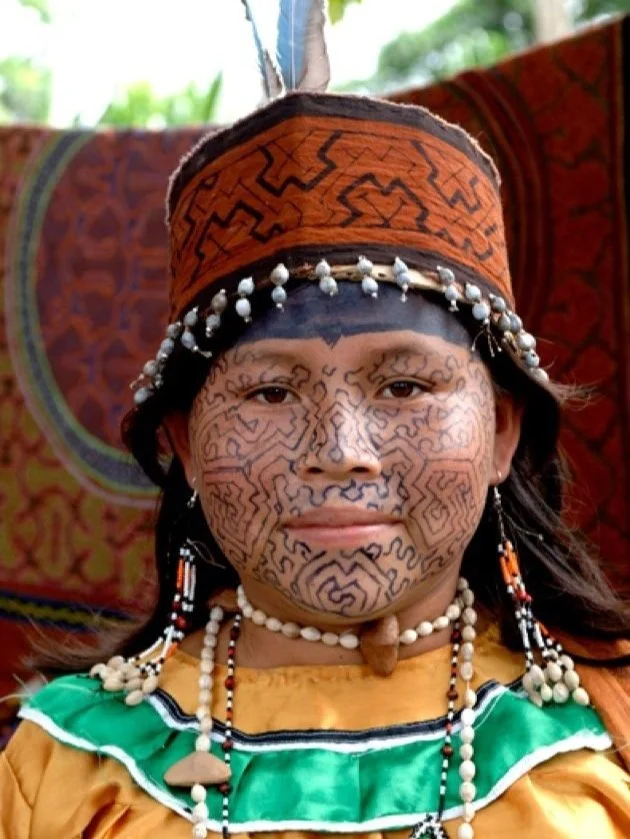Unveiling the Sacred: Plant Medicine and the Shipibo People
In the heart of the Amazon Rainforest, where the lush canopy whispers ancient secrets, there exists a culture profoundly entwined with the spiritual and healing powers of plant medicine. The Shipibo people, guardians of one of the richest medicinal floras on our planet, carry a legacy that is as deep and intricate as the jungles surrounding their communities. This blog post seeks to explore the profound relationship between the Shipibo people and their sacred plant medicines, offering a glimpse into a tradition that has much to teach us about health, spirituality, and our connection to nature.
The Shipibo People: A Brief Overview
The Shipibo-Conibo are an indigenous people living along the Ucayali River in the Amazon rainforest in Peru. Renowned for their intricate art, cosmology, and profound herbal knowledge, the Shipibo are considered by many as the custodians of the rainforest and its healing secrets. Their culture is characterized by a deep reverence for the natural world, seeing themselves as an integral part of the ecosystem.
Plant Medicine: More Than Just Healing
For the Shipibo, plant medicine is not merely a form of physical or even psychological healing; it's a pathway to spiritual awakening and understanding. At the core of this belief system is Ayahuasca, a sacred brew made from the Banisteriopsis caapi vine and leaves of the Chacruna plant (Psychotria viridis), among other ingredients. This powerful hallucinogen has been used for centuries in ceremonial contexts to heal, divine, and connect with the spiritual world.
However, Ayahuasca is only one aspect of the Shipibo's pharmacopeia. They possess extensive knowledge of hundreds, if not thousands, of other plants, each with its unique spirit or "genius." These plants are used not only for healing physical ailments but also for addressing spiritual, emotional, and psychological imbalance. The Shipibo believe that by working with these plant spirits, one can achieve a state of harmony and balance within oneself, with others, and with the surrounding environment.
The Art of Healing: A Dual Journey
Soul School facilitators Sierra and Jia
Under the guidance of a curandero (healer) or shaman, participants in a healing ceremony embark on a journey that is as much inward as it is outward. The curandero serves as a mediator between the physical and spiritual worlds, invoking the spirits of the plants to heal and enlighten the participants. This process is deeply personal, with each individual's experience shaped by their own intentions, struggles, and openness to the teachings of the plant spirits.
The intricate geometric patterns seen in Shipibo art are said to be visual representations of the cosmic visions and harmonious sounds encountered in these healing ceremonies. These patterns, or kené, are believed to encapsulate the essence of the Shipibo cosmology, embodying the interconnectedness of all life.
A Living Tradition in a Changing World
Despite the growing interest in Ayahuasca and other plant medicines around the globe, the Shipibo people face significant challenges. Deforestation, oil extraction, and the pressures of modernization threaten both their way of life and the biodiversity that sustains their traditional practices. Yet, the resilience and wisdom of the Shipibo endure, reminding us of the potential for healing and transformation that lies in a respectful, reciprocal relationship with the natural world.
As we navigate an era marked by disconnection and ecological crisis, the teachings of the Shipibo people offer a beacon of hope. Their profound understanding of plant medicine invites us to reconsider our relationships with nature, health, and spirituality, potentially guiding humanity towards a more sustainable and harmonious existence.
In embracing the wisdom of the Shipibo, we are reminded that true healing—be it personal, social, or ecological—is not only about curing symptoms but about restoring balance and harmony within and around us. The journey with plant medicine, then, becomes a powerful metaphor for the broader path of healing that our planet and its inhabitants so urgently need.







